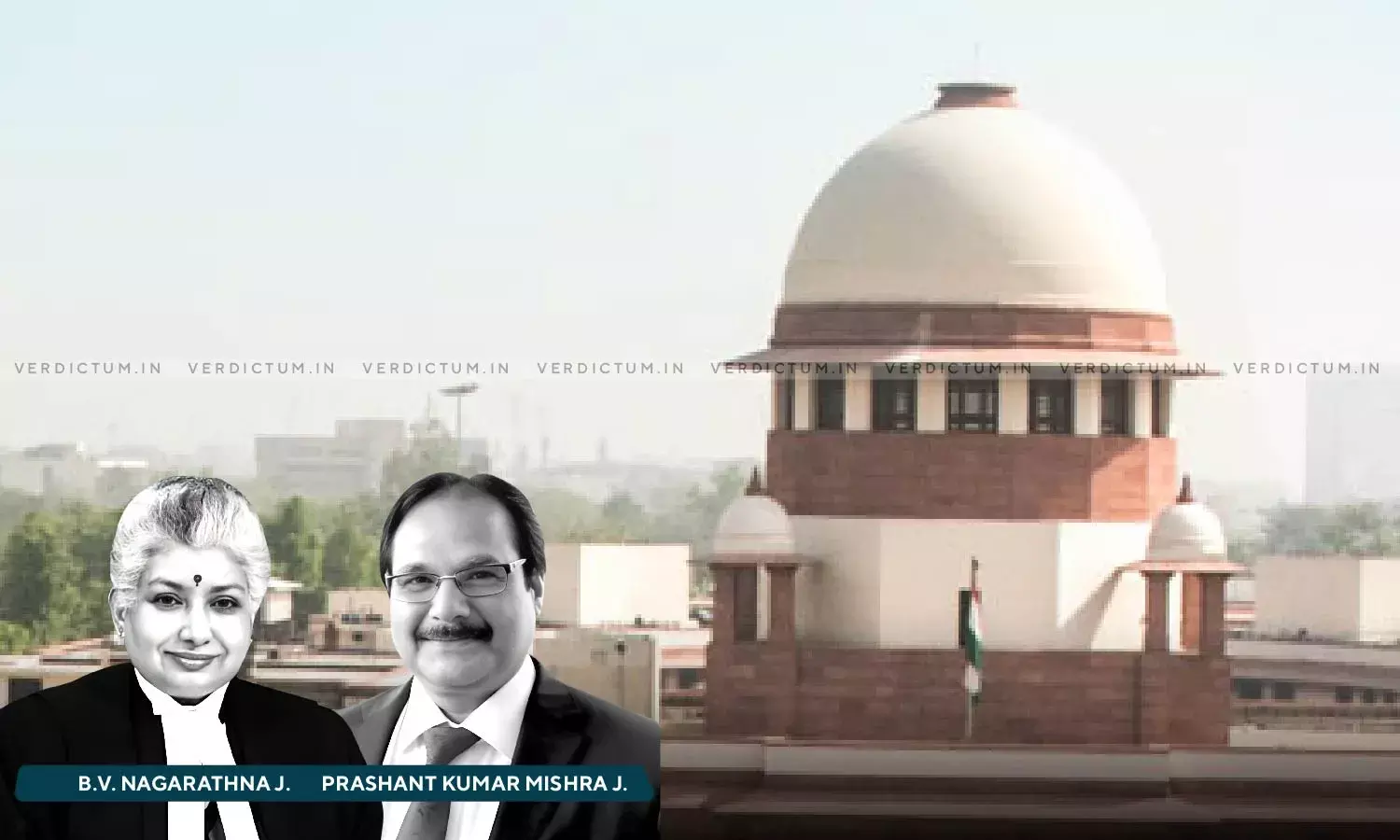Not Necessary For Courts To Assign Elaborate Reasons Or Engage In Roving Inquiry Over Prosecution's Case While Granting Bail: SC Reiterates

The Supreme Court has reiterated that it is not necessary for Courts to assign elaborate reasons or engage in a roving inquiry regarding the Prosecution's case while granting bail.
The two-judge Bench of Justice B.V. Nagarathna and Justice Prashant Kumar Mishra observed, "...it is not necessary for a Court to assign elaborate reasons or engage in a roving inquiry as to the merits of the prosecution’s case while granting bail, particularly, when the trial is at the initial stages and the allegations against the accused would not have been crystalised as such."
Advocate Rajan Chawla appeared for the Appellant and Advocates Asad Alvi and Milind Kumar appeared for the Respondents.
In this case, the Appellant was the brother of one of the deceased and an informant who lodged an FIR against the Respondents/Accused Individuals under Section 302 read with Section 34 of the Indian Penal Code, 1860 (IPC) and Section 3 read with Sections 25 and 27 of the Arms Act, 1959 (AA). The Appellant’s brother was in an extramarital live-in relationship with one Nirma @ Gudia, the family of the Appellant and parents-in-law of Nirma was unhappy about the relationship and threatened to kill the Appellant’s brother. One day, a video surfaced on social media about the Appellant’s brother being shot in the Nayapura Mandore area and subsequently died due to the injuries. The Respondents filed an application seeking regular bail before the District Court, which was dismissed. The Respondents then filed before the High Court and were granted bail.
The Court emphasized that courts must consider the following factors, among others, when assessing the bail of an Accused; firstly, the seriousness of the offence; secondly, the likelihood of the accused fleeing from justice; thirdly, the impact of the release of the accused on the prosecution witnesses; and lastly the likelihood of the accused tampering with evidence. The Bench placed reliance on Gudikanti Narasimhulu vs. Public Prosecutor, High Court of Andhra Pradesh [(1978) 1 SCC 240], Prahlad Singh Bhati vs. NCT, Delhi [(2001) 4 SCC 280] and Anil Kumar Yadav vs. State (NCT of Delhi) [(2018) 12 SCC 129].
The Bench further observed, “While we are conscious of the fact that liberty of an individual is an invaluable right, at the same time while considering an application for bail, courts cannot lose sight of the serious nature of the accusations against an accused and the facts that have a bearing on the case, particularly, when the accusations may not be false, frivolous or vexatious in nature but are supported by adequate material brought on record so as to enable a Court to arrive at a prima facie conclusion”.
Additionally, the Court asserted that High Court erred in deciding the bail of the Respondents and had not taken into account even a single material aspect of the case. “However, the Court deciding a bail application cannot completely divorce its decision from material aspects of the case such as the allegations made against the accused; severity of the punishment if the allegations are proved beyond reasonable doubt and would result in a conviction; reasonable apprehension of the witnesses being influenced by the accused; tampering with the evidence; criminal antecedents of the accused; and a prima-facie satisfaction of the Court in support of the charge against the accused”, the Bench held.
Accordingly, the Apex Court allowed the appeal and set aside the impugned judgment of the High Court.
Cause Title: Rohit Bishnoi v. The State of Rajasthan & Anr. (2023 INSC 642)

